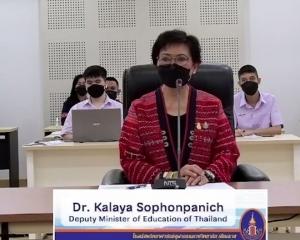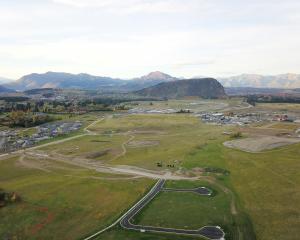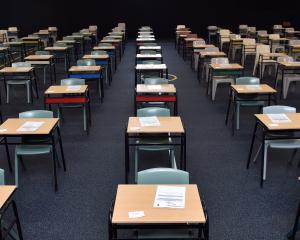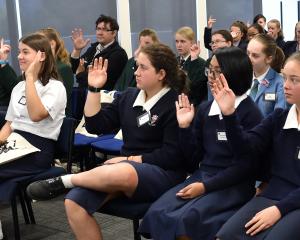The Otago Secondary Principals Association says Otago schools are proactive in dealing with bullying despite a top-level inquiry by the Childrens Commissioner which found some New Zealand schools are not.
Principals association chairman and Kaikorai Valley College principal Philip Craigie said Otago schools were safe because they were proactive, and had good systems in place when dealing with bullying.
In the report, which was presented at a school violence summit in Wellington, Commissioner Cindy Kiro said the fear of bullying was stopping some children getting an education, and she warned that pupils could sue teachers and schools which were lax in dealing with the problem.
The report, to be officially released today, was prompted by calls to the commissioner's office, her dealings with children and young people, the office's Young People's Reference Group and media coverage of some severe bullying incidents.
The calls indicated an independent inquiry into peer bullying, violence and abuse would be timely.
Dr Kiro said the impact of not addressing bullying was far-reaching and linked to future difficulties in life.
In the short-term, studies showed victims showed higher than normal absenteeism and early school drop-out rates.
Bullying also extended beyond the school gate via the internet and cellphones, she said.
"The extensive reach of these forms of bullying often means the victim gets no respite and the bullying is not restricted to time at school."
Bullying was not gender-specific, as girls were just as likely to fight as boys, but the effect of appearance-related teasing was often more enduring in girls, Dr Kiro said.
"This report is not to blame and shame.
''While there are indications that some schools are not dealing with this problem appropriately, more schools than not are committed to providing a safe environment and have clear whole-school policies and procedures to ensure the issue of bullying is addressed," she said.
The report recommends changes to the school system which include pupil and teacher training on responding to violence or bullying, setting up a safe and confidential reporting system and communicating with parents, police and other agencies.
It also suggested schools make lunch breaks shorter and stagger bell times for different classes to limit the number of children unsupervised at any one time, the Sunday Star Times reported.
Mr Craigie said Otago schools had the lowest suspension and exclusion rates in the country "and that, to me, is an indication that they have good systems in place and that they try hard to deal with the issues when they arise".
"All schools accept that there is bullying.
''They don't deny it happens.
''And they have ways to put things right when they know about it."
Mr Craigie said bullying techniques were continually evolving and often they were learned from adults in situations outside school grounds.
"Problems that spill in from home, or a lack of family environment, are the hardest to deal with.
The great advances in technology haven't helped.
It's so easy to give somebody a hard time by texting or by emailing and blogging.
"As far as schools are concerned in Otago, they work pretty hard to deal with it when they find out about it," he said.
- Additional reporting by NZPA











